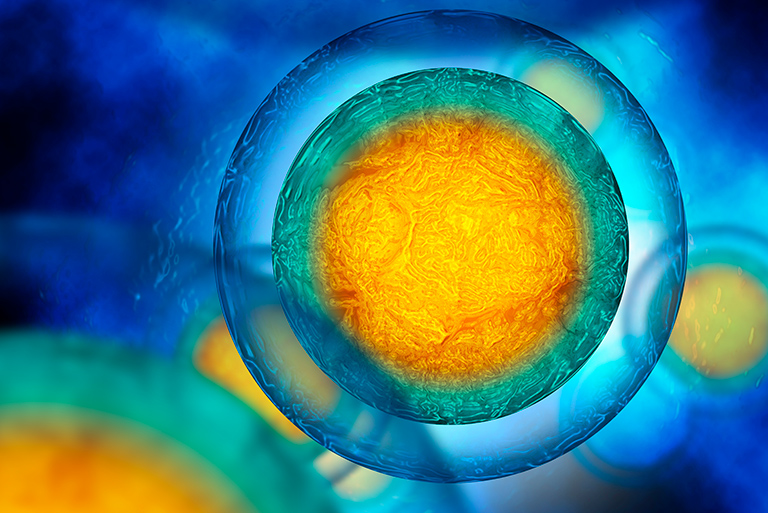
Egg freezing involves the freezing and storage of unfertilized eggs obtained by ovarian stimulation and egg retrieval. The procedure is performed by a reproductive endocrinologist. The patient undergoes a cycle similar to in vitro fertilization (IVF). The process begins with ovarian stimulation using hormones that are self-injected daily by the patient for about 10 days. Next, transvaginal (or, in some cases) trans-abdominal egg retrieval is performed under anesthesia. The unfertilized eggs are frozen and stored for possible future use.
Note: Ovarian stimulation can begin on any day of the menstrual cycle to minimize treatment delays.
Who is Eligible?
Post-pubertal to pre-menopausal females (ages ~15-45) can consider egg freezing for fertility preservation. Typically, single patients who do not have a spouse or male partner are most interested in egg freezing, because there is no sperm needed for fertilization (as is the case for embryo freezing).
What are the Potential Risks/Concerns?
There is a risk hormones administered for ovarian stimulation will elevate estrogen levels. Medications such as aromatase inhibitors can be given to lower estrogen levels in women with hormone-sensitive tumors or with a history of DVT/PE. This process takes two to three weeks.
Future Use and Success Rates
When ready to attempt pregnancy, the frozen eggs are thawed and fertilized. The resulting embryos are transferred to the uterus of the patient or a gestational carrier. If the patient does not have adequate ovarian function at the time of the planned embryo transfer, she can be given hormones for about three weeks before transfer and three months after to support the pregnancy. Egg freezing is no longer considered experimental according to the American Society for Reproductive Medicine.1 Success rates in young women are similar to those seen with embryo freezing and are directly related to the age of the patient when she froze her eggs.
What are the Costs?
The costs for egg freezing range from $8,000 – $12,000.
References